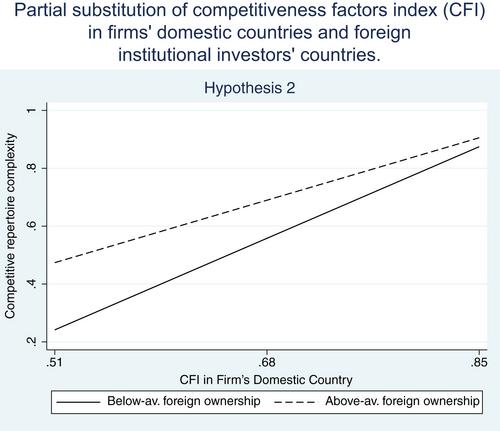Recent research has shown that firms' ability to employ complex competitive repertoires can create long-term competitive advantages. Since research on its determinants has focused on the firm level, we lack an understanding of how country-level factors impact firms' implementation of complex competitive repertoires. Our cross-country study addresses this gap by integrating a model of country-level competitiveness factors with insights from the literature on competitive dynamics and portable governance. We argue that a country context with high-quality competitiveness factors enables firms to implement complex competitive repertoires. In addition, we hypothesize that firms with foreign investors from countries with high-quality competitiveness factors can partially compensate for low-quality factors in firms' domestic context. We found support for our hypotheses in an unbalanced sample containing 1,340 firms from 32 countries.
Employing complex competitive repertoires (i.e., diverse and dynamic arrays of competitive actions), such as price reductions or new product introductions, can help firms outcompete their competition. We argue and empirically show that firms' domestic country context, specifically high-quality governance, factor and demand conditions, related and supporting industries, and strong context for rivalry drive their ability to implement complex repertoires. Moreover, we find that ownership by foreign investors from favorable country backgrounds can partly compensate for firms' weak conditions at home by serving as enabling bridges. Managers who aim to improve their firms' repertoire complexity but are restricted by their domestic country context may consider attracting foreign investors from countries that have what their countries lack.



